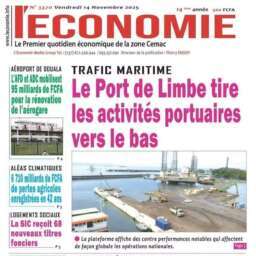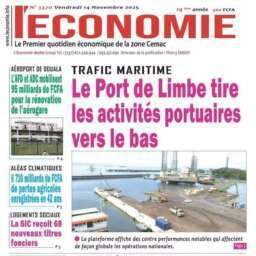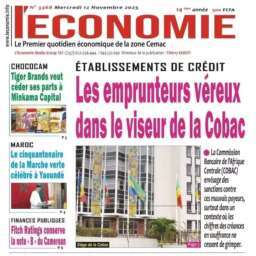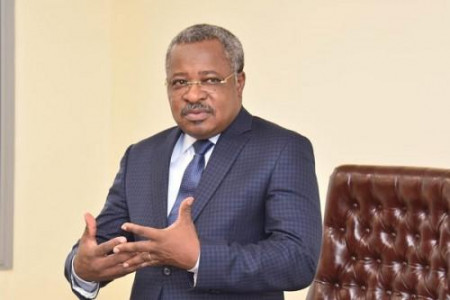(Business in Cameroon) – A dispute has emerged between the governor of the Bank of Central African States (BEAC), who also chairs the Central African Banking Commission (COBAC), and the head of Cameroon’s deposit and consignment funds (CDEC) over the supervision of deposit and consignment funds (CDC) in the CEMAC region.
After the second meeting of a working group tasked with developing a regulatory framework for CDC oversight, held on January 12 in Yaoundé, the two officials issued conflicting statements, revealing a deep divide.
BEAC Governor Yvon Sana Bangui welcomed what he called “relevant proposals” that will be incorporated into draft regulations prepared by COBAC. These regulations would place CDCs under its supervision. But Cameroon’s CDEC Director General Richard Evina Obam firmly rejected this approach, sticking to his long-standing position. In a statement published on February 17—five days after Bangui’s—he called for the draft regulation to be scrapped.
“After intense discussions and an international comparison, CDEC proposes the withdrawal of this preliminary draft and recommends limiting COBAC’s oversight to residual banking operations that CDCs may conduct when they do not establish dedicated subsidiaries,” he stated.
Obam argued that, based on CEMAC community law, national law, and comparative law from the EU and WAMU, deposits and consignments remain a sovereign function governed by national legislation. He insisted that CDEC’s activities do not qualify as banking operations since its funds are not collected from the public but mandated by laws, regulations, and administrative or judicial decisions.
Furthermore, he stressed that CDEC manages public funds, making it a public accountant under CEMAC Directive No. 02/11-UEAC-190-CM-22 of December 19, 2011, which governs public accounting. “As a result, CDEC falls outside COBAC’s jurisdiction, as specified in Article 11 of the annex to the January 17, 1992, convention on banking regulation harmonization in Central Africa. Like in other economic zones, CDCs cannot be subject to banking supervision,” he concluded.
A Sovereignty Battle
Richard Evina Obam’s stance aligns with recent government actions asserting sovereignty over its financial institutions. The dispute with COBAC intensified after banks operating in Cameroon were ordered to transfer dormant and unclaimed assets to CDEC. Following complaints from bankers, COBAC requested a temporary suspension of these transfers on July 11, 2024, citing the lack of a clear regional regulatory framework. This move sparked a strong response from Cameroonian authorities, including the presidency.
Despite COBAC’s request, President Paul Biya’s office intervened on August 1, 2024, instructing Finance Minister Louis Paul Motaze to proceed with the transfers. Even after a working group was set up on October 18, 2024, Cameroon reaffirmed its commitment to strengthening CDEC on November 25, 2024, through a ministerial decree outlining its role in financial markets, including debt and equity securities.
Then, on February 3, 2025, CDEC launched a public call for bids to select firms to study the creation of a banking subsidiary. This move underscores Cameroon’s determination to develop CDEC as a key financial player in its economy on its own terms, independent of COBAC’s oversight.

































